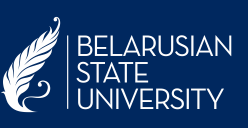
 |
Ïåäàãîãèêà èíôîðìàòèêè |
PEDAGOGY OF COMPUTER SCIENCE |
ISSN 2708-4124 |
|
DIGITAL TOOLS AND APPLICATIONS FOR TEACHERS S. Knyazeva, D. Kapelyushnik, E. Pushkareva FULL TEXT: PDF (Rus) Abstract Many national educational systems faced the challenges related to full-scale shift to distance and online learning during the widespread lockdown of schools due to the COVID-19 pandemic. Major problems were related to facilitation of the use of information and communication technologies by teachers due to the lack of sufficient ICT skills and need for teacher training and professional development. Based on the UNESCO ICT Competency Framework for Teachers, the UNESCO Institute for Information Technologies in Education developed an open online course “Digital tools and services for teachers” for teachers and educational institutions, which, in addition to latest trends and promising directions for integrating information technology in education, covers main concepts related to the use of digital technologies in face-to-face and distance education, Russian Federation legal and regulatory framework for ICT use in education, as well as practical recommendations for the creation of digital educational content, use of tools and applications to support effective educational process. Course materials include examples and links to specific systems, applications and services which provide tools enabling the development and to use and create digital educational resources, charts and infographics, presentations, video, web-quests, interactive exercises, puzzles and quizzes, timelines, tests, etc. Key words Information and communication technology, digital skills, teacher training and professional development, 21st century skills, open educational resources. Received: 09/09/2020; accepted for publication: 09/20/2020. For citation: ________________________________________ Knyazeva S., Kapelyushnik D, Pushkareva E. Digital toolsand applications for teachers. Electronic scientific and methodological journal “Pedagogy of computer science”. 2020;3. Http://pcs.bsu.by/2020_3/1ru.pdf Content is available under license Creative Commons Attribution-NonCommercial-ShareAlike 4.0 International License. About the authors: Knyazeva S.
Kapelyushnik D.
Pushkareva E.
References 1. Take Action for the Sustainable Development Goals. [Electronic resource]. United Nations. Available at: https://www.un.org/sustainabledevelopment/sustainable-development-goals/ 2. Transforming Our World: An Agenda sustainable development for the period up to 2030. [Electronic resource]. United Nations. Available at: https://www.un.org/ga/search/view_doc.asp?symbol=A/RES/70/1&Lang=R (in Russian). 3. The structure of ICT competence of teachers. UNESCO recommendations. [Electronic resource]. Available at: https://iite.unesco.org/pics/publications/ru/files/3214694.pdf (in Russian). 4. ICT Competency Framework for Teachers, Version 3. UNESCO, 2018. ISBN 978-92-3-100285-4. 5. Digital tools and applications for teachers. [Electronic resource]. Available at: https://stepik.org/course/56395/promo 6. Pannatier M. Online learning with video: affordances, functions, implications for instructional design.Uchenijezapiski ISGZ. 2017;15(1): 425-441. (in Russian). ISSN: 2078-6980. 7. Polat E., Buharina M., Moiseeva M. et al. Theoria and praktika distantsionnogo obuchenia: uchebnoe posobije dlya studentov vysshih uchebnyh zavedeniy [Theory and practice of distance education: textbook for students of higher education institutions]. M.: Academia, 2004. 416 p. (in Russian). ISBN 5-7695-1533-3. 8. Vorozhbit S., Generalov A., Evtyushkin A., Rizmanov L., Hohlov Y. Use of Creative Commons licenses in the Russian Federation. Analytical report. M.: Information Society Development Institute, 2011. 94 p. (in Russian). ISBN 978-5-901907-30-6. |